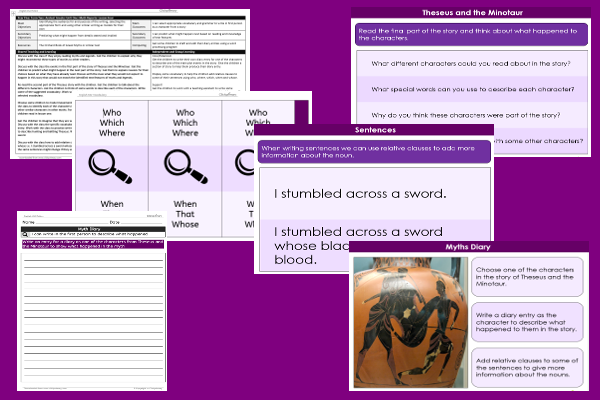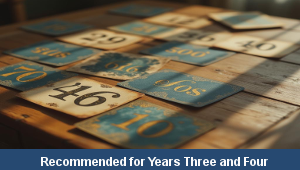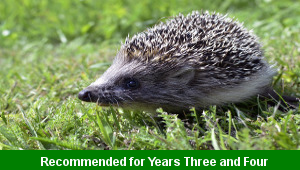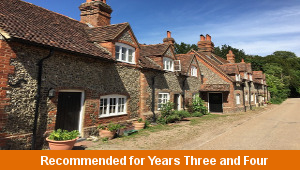Lesson Four – Myth Diary

This English teaching pack for Key Stage Two gets the children to describe and model how to compose a diary entry to record the sequence of narrative events that occurred in a myth from Ancient Greece.
The class can identify and make predictions as to how the narrative might develop and conclude in a myth that is set in Ancient Greece about Theseus and the Minotaur.
Download this teaching pack including a lesson plan, classroom activities and an interactive presentation to describe and model how to compose a diary entry to record the sequence of narrative events that occurred in a myth from Ancient Greece
Activities in this teaching pack include a table display card to select and use relative clauses to modify nouns in sentences written in a diary entry and a template to compose a diary entry to record the sequence of narrative events in a myth from Ancient Greece.
The interactive presentation gets the children to explore how to compose a diary entry to record the sequence of narrative events in a myth from Ancient Greece.
This lesson is part of an English scheme of work to get the children to explore the text features and characteristic structures of myths and legends, match words roots with the verb prefixes dis and mis and practise embedding relative clauses into sentences. There are teaching activities for shared learning, differentiated worksheets to support independent learning and interactive presentations to introduce concepts and key skills.
-

Rounding Hundreds
Explain and model how to round some different numbers to the nearest hundred based on the place values of the digits in each number
-

Rounding Tens
Identify and record how to round some different numbers to the nearest ten based on the place values of the digits in each number
-

Classic Animal Stories
Investigate the structure and content of classic works of fiction by significant authors with animals as the main characters
-

Cities, Towns and Villages
Research and present the history of a range of different buildings and people that are part of the local community using a school exhibition
